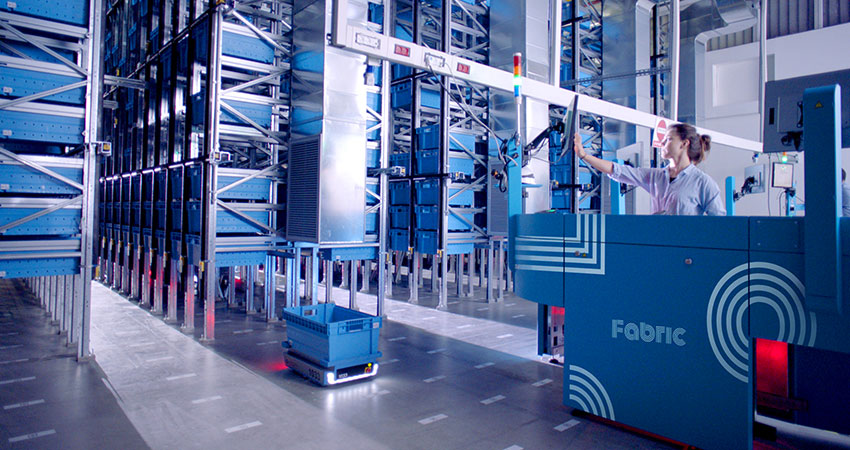A Fabric MFC (Source: company)
Fabric, maker of automated systems for on-demand micro fulfillment in urban settings, has raised a fresh $200 million, bringing its valuation above the vaunted $1 billion mark as it looks to expand to new markets beyond its current operations in Washington, DC, New York and its launch site of Tel Aviv.
The round was led by existing investor Temasek, with participation from Koch Disruptive Technologies, Union Tech Ventures, Harel Insurance & Finance, Pontifax Global Food and Agriculture Technology Fund (Pontifax AgTech), Canada Pension Plan Investment Board (CPP Investments), KSH Capital, Princeville Capital, Wharton Equity Ventures and others. Fabric has raised $336 million to date.
“We believe the movement to local fulfillment presents an opportunity to make retail and ecommerce more sustainable, and we’re thrilled to partner with the leader in micro fulfillment to make this vision a reality,” said Eric Kosmowski, Managing Partner at the Princeville Climate Technology Fund in a release. “By leveraging existing real estate with a small footprint in close proximity to end consumers, utilizing more sustainable packing materials, and minimizing shrink and waste through smart inventory management, Fabric’s micro fulfillment centers could lower last-mile emissions significantly.”
The company plans to expand deeper into general merchandise retail beyond the grocery category, build an MFC network in major metro areas across the United States to scale on-demand delivery, and hire talent for its technology, commerce and operations teams in Israel and the U.S.
Founded in 2015, Fabric, which punningly calls itself a “robocorn” (and is not to be confused with a headless commerce company of the same name) is a grocery MFC provider for Walmart (which also uses competitors Alert Innovation and Dematic), Instacart and FreshDirect, and currently employs 300 in New York, Atlanta and Tel Aviv.
Colin Coggins, Chief Commerce Officer of Fabric, said the company’s focus is on lowering the expensive unit economics of ecommerce fulfillment through flexible high-speed automated picking in a small MFC footprint of about 6,000 square feet, as close as you can get to high-density demand among desirable high-income urban dwellers. It operates both its own multi-tenant MFCs and can set up its grid-based bot system in a client’s facility.
“We believe the future of commerce is in networked localized inventory and advanced data intelligence, combined with automation,” Coggins said. “While right now we’re enabling retailers and brands to profitably scale their commerce business with on-demand fulfillment, the conversations we’re having with them are about future proofing against new customer expectations. We’re giving them the opportunity to leverage advanced data intelligence to predict and generate demand in near real time when stocking inventory.”
While acknowledging that massive supply chain challenges are hurting retail and ecommerce businesses, especially extending receiving and delivery lead times and pinching inventory levels ahead of the crucial holidays, Coggins said Fabric is helping them deal with what’s within their control.
“There’s a huge influx of demand coming inbound, and the idea of brands and retailers trying to get closer to their customers is to mitigate some of that risk,” he said. “When you think about the competitive landscape and MFCs specifically, retailers and brands’ main concern is, how to do that and have the right amount of amount of inventory in a city center, at the right time. That’s our sweet spot.”
Coggins said he was talking recently to someone from “one of the world’s largest retailers” about how the company had been wanting to build out MFC capabilities “for a long time.”
“Then he took it a step further,” he said. “He equated what we’re doing with the shift that happened when Amazon built out AWS. The end goal is to make sure everyone can compete, not just some. That scalability is part of our discussions with all our partners.”

